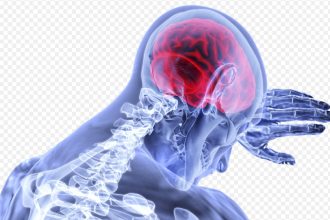Long-term disability claims often involve intricate evaluations, where the claimant’s mental and cognitive health becomes a focal point. One crucial aspect that significantly impacts the approval process is the neuropsychological evaluation. Understanding how these evaluations work and their role in decision-making can provide essential insights for anyone navigating the complexities of long-term disability claims.
The Role of Neuropsychological Evaluations
Neuropsychological assessments are broad-based examinations intended to evaluate an individual’s ability to remember, concentrate, solve problems, and talk. These evaluations are performed by neuropsychologists and clinicians who are also knowledgeable concerning the link between the brain and behavior. In contrast to standard psychological tests, neuropsychological assessments explore a person’s cognitive functions more detailedly and reveal how their mental state influences their daily life and work productivity.
It encompasses several paper and pencil tests that may take several hours to administer. These tests are designed to evaluate different aspects of cognitive functioning and play an important role when diagnosing traumatic brain injury, stroke, dementia, and other similar diseases. These results assist in identifying the extent and type of impairments that a claimant may have, which is essential in deciphering how these impairments affect a person’s ability to perform his or her duties at work or in other daily activities.
The effect of SCI on long-term disability claims
To persons who have been in the process of applying for lasting disability, it becomes a breakthrough to have a neuropsychological analysis done on them. These evaluations bring out neutral evidence of impaired cognitive functionality and can, therefore, support disability claims. Regarding insurance companies and disability adjudicators, physical objective evidence is always necessary, and neuropsychological evaluations provide this by assessing the claimant using scientifically tested objective measures.
In the case of disability approvals, one common way that neuropsychological evaluations have an impact is by monitoring the cognitive impairments that other medical diagnostics may not detect. For example, an individual with TBI might look fully well and yet have memory impairment, inattention, or difficulties with executive functioning. These cognitive problems can all significantly impair their ability to work and a neuropsychological assessment can make these deficits apparent, allowing for a strong disability case.
Furthermore, neuropsychological assessments could assist in determining the origin of the impairments, psychological or neurological. This is important, particularly in extended disability cases, because the origin of disability may affect the decision made about the claim. For instance, it may be hard to determine whether cognitive deficits arising from depression should be considered on par with those resulting from a head injury or a disease of the brain. This way, the specifics of the cognitive impairment help the claimants receive due recognition and compensation for their conditions by identifying the nature of the problems.
Detailed Documentation and Support
Another benefit of neuropsychological evaluations is the detailed specifics that accompany this process. The evaluations produce reports that contain the tests conducted, analyses, and possible recommendations to consider. This documentation can prove very helpful in the disability claims process as it provides the court with clear and objective evidence that will support the disability claimant’s case.
Insurance companies often scrutinize disability claims to determine whether the allegations made by disability insurers lack merit. Neuropsychological evaluations do not allow such insecurity, as they are professional, comprehensive, and reliable. The papers supplement each other, as the detailed reports not only name the cognitive deficits but also describe how these deficits affect functional abilities. This clarity can further strengthen the argument, thus increasing its chances of adoption.
Further, neuropsychological assessments may also provide suggestions on accommodations/interventions that could potentially help the claimant cope with the disability. They may be vital in long-term disability claims or cases where the individual seeks not only a monetary award but also an enhancement in their quality of life. Neuropsychological evaluations that include an assessment of suggested strategies or therapies help better understand the management of disability.
Challenges and Considerations
However, as demonstrated throughout this paper, neuropsychological evaluations, despite their usefulness when determining long-term disability, also have their own set of problems. The evaluation process may take time, and it may be tiring for the claimant to produce the relevant documents and cooperate fully. Furthermore, these evaluations may be costly, and not all insurance policies will bear the cost or provide the claimant with equal compensation.
It is also essential to ensure the neuropsychological evaluation is done by a professional neuropsychologist or one with a good reputation. A number of professionals involved in the administration of the tests agree that the quality and accuracy of the evaluation significantly depend on the tester’s experience. As a result, the claimants should opt for professionals such as neuropsychologists to offer the review of disability claims with prior knowledge.
Conclusion
Neuropsychological assessments are often critical to approving LTDs because they are objective and present a complete, scientifically grounded picture of the claimant’s cognitive deficits. These assessments assist in justifying an argument, distinguishing between mental and neurological disorders, and providing attached documents that can provide evidence for the claimant’s case.
Although this process can be cumbersome and expensive, the value of a comprehensive neuropsychological assessment balances the disadvantage, thus playing an important factor in attaining permanent disability benefits. Regrettably, disability claims are inherently complicated for anyone who is going through them. Therefore, there is a lot of benefit to be had when one can comprehend and effectively harness the power of neuropsychological evaluations.















